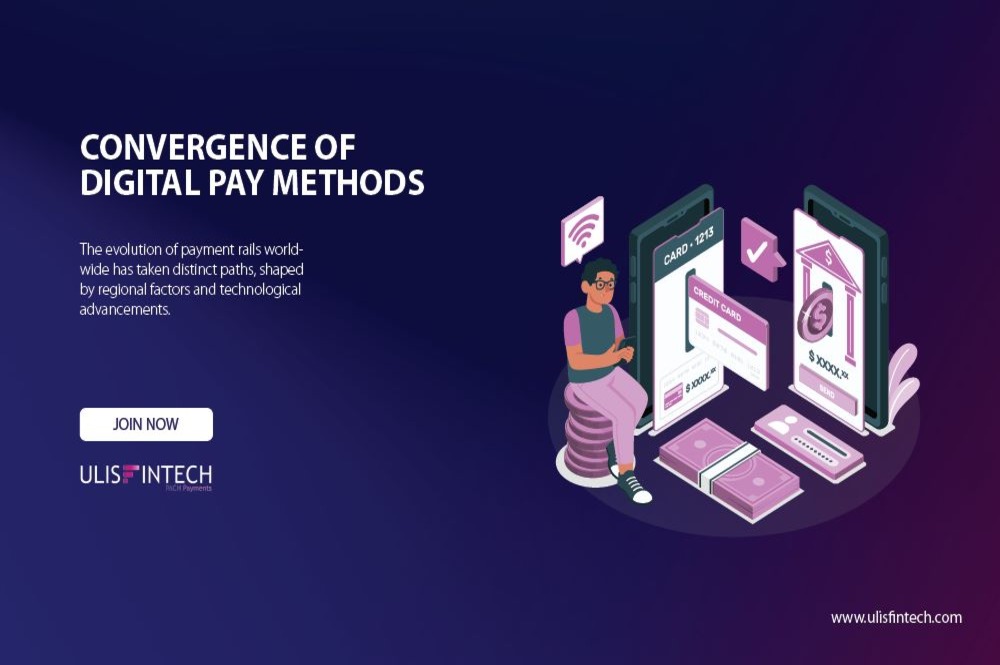Fintech Revolutionizing Cross Border Payment
Jul 08, 2022 - 8 MINS READ

Fintech revolutionizing cross-border payment
Cross-border eCommerce is here to stay, as more global visitors become digital customers. According to McKinsey, cross-border payment revenues will reach $1.9 billion by the end of 2020. Even though the events of 2020 appear to have reset the global payments environment, cross-border trade is here to stay.
Those with low electronic penetration, such as Brazil, Indonesia, India, and Thailand, are prepared for robust payments growth, whilst countries with greater degrees of digitization, such as Germany and the United Kingdom, will continue to drive growing payments income as cash usage stays low. According to a Forrester analysis, cross-border eCommerce would cover at least 29 nations throughout North America, Latin America, Europe, Asia Pacific, Africa, and the Middle East. In our eBook, Regional payment trends 2021, we analyzed how Covid-19 accelerated the worldwide transition toward digital – from India and Italy to Germany and the United Kingdom – for businesses wishing to extend their operations into important areas across the world.
Cross-border payments are transactions in which the payee and the beneficiary are located in different countries. Transactions can take place between people, businesses, or financial organizations wishing to move cash across borders. It is critical for international merchants to be able to take payments in all the countries that they are targeting. We developed an instructional movie with useful information about cross-border payments to help you better understand the global payments ecosystem and how you can expand your business by choosing the proper payments partner for your international payments.
International payments received
If merchants want to expand globally, they need partner with a Payment Service Provider (PSP) that provides a secure, worldwide payment gateway. A payment gateway serves as a bridge between the many institutions inside the payments system, allowing payments to be transferred securely between the client, merchant, and producing and acquiring banks. It confirms the payment and secures the critical financial data being sent between the parties.
To maximize your chances of accessing new markets, ensure that the gateway you select to interface with supports a broad range of payments currencies. Using local currency for card transactions may result in higher acceptance rates. When purchasing online, customers want to know the exact price they will be paid in their native currency. For instance, if a UK customer puts a purchase with a US firm that only displays pricing in dollars, the total cost in pounds will be shown only after the transaction is completed. This may cause consumer annoyance, and retailers should strive to be as honest as possible regarding their price.
Due to the requirement to become digital and cashless during the epidemic, India's FinTech enterprises have made a major boost in the previous two years. They had brought a big number of unbanked people into the financial system and inspired others to become digital. Hundreds of new enterprises have emerged as a result of the FinTech revolution, with worldwide investors pouring in over $28 billion, the majority of which occurred during the epidemic.
Merchants may solve these challenges in a variety of ways, including opening several bank accounts in the countries where they want to take payments (which can be costly), or partnering with an experienced global PSP. Merchants must choose a PSP who might enable pass transactions easy for both them and their consumers.
We Provide common regional payment methods
It is worth examining which payment methods are widespread in the regions you choose to operate in — chapter one of our recent report New World, One Market provides some crucial insights here. It is possible that credit and debit cards are preferred, in which case you can optimize your operations accordingly. Universal credit card brands may not be the most cost-effective solution for your consumer, so conduct more research into local credit card options.
On the other hand, an Alternate Payment Method (APM) that is commonly utilised in a certain region may exist. Fintech Money's eWallet, for example, is widely used in Eastern Europe and Russia, but prepaid cards like AstroPay are worth examining for firms trying to grow into Latin America. Certain APMs, such as eWallets, have found popularity in China, where they produced around $43 billion in revenue in 2019, considerably surpassing the approximately $22 billion for the rest of the world combined, according to McKinsey. Neglecting these important elements may result in income loss since potential clients are more inclined to patronize enterprises that cater to their needs.
Cross-border payment types
Cross-border payments include credit card payments, bank transfers, and APMs. Customers like to pay in the most convenient method for them. Furthermore, customers want to be provided customized options and have confidence that their financial information will be handled securely. As a result, retailers must cover all bases and provide several options for their consumers to pay across borders.
Payments by credit card
Credit cards play an important part in cross-border payments and are a popular payment method for many customers. The consumer just enters their credit card information and waits for the transaction to be validated. There is more going on behind the scenes. Cross-border payments necessitate additional effort from the credit card networks and acquiring banks involved since they must convert between two distinct currencies. This increased workload leads to higher fees that are transmitted down the payment chain.
Transfers between banks
International bank transfers are another traditional method of making a cross-border payment. Most bigger banks will keep a limited selection of currencies on hand, but only a few can be accommodated at any given time. As a result, when a client in the UK wants to transfer money to a nation where they don't have the currency in store, they must rely on their overseas banking partners to facilitate the transaction. Smaller banks frequently lack foreign currency reserves; therefore they rely on major banks to host cross-border transfers on their behalf.
This is only a sample of cross-border payment processing; there may be many more parties involved, causing the transaction to be delayed. SWIFT gpi, which we shall go over in more detail later, is an effort to ramp up the processes involved in cross-border payments.
Fintech eWallet
A Fintech eWallet, sometimes called a digital wallet, is an app digital APM that allows clients to pay for purchases online or in-store. eWallets, which are commonly available through applications for smart devices, allow users to securely store their preferred payment cards in order to pay for products and services. PayPal, Neteller, Alipay, Apple Pay, and Google Pay are examples of popular eWallets.
Cross-border payments between businesses
According to a recent Juniper Research analysis, the overall value of B2B cross-border payments will exceed $35 trillion in 2022, up from $27 trillion in 2020, thanks mostly to the influence of COVID-19.
This is a field ripe for innovation and growth, with the future years promising to be exciting for international B2B payments. The travel and hotel industries, in particular, stand to profit from the anticipated streamlining of cross-border payments.
Issues with cross-border payments
Merchants may be apprehensive about the cost and time associated with making cross-border payments and crossing many jurisdictions to execute a transaction may appear to be a difficult procedure. Receiving payments as promptly and cost-effectively as feasible is a goal for merchants; consequently, working with a PSP who can assist alleviate these potential pain points is essential.
Furthermore, retailers must engage with a supplier who will be clear about the transaction and foreign currency (FX) fees so that they do not pay hidden charges.
How long does it take to make an overseas payment?
International payments usually settle within 2 to 5 business days. The timing is determined by the destination of the funds and the number of intermediate institutions involved. The much more financial institutions the money must travel through, the longer it will take for the transaction to clear.
Cross-border payments in real-time
The objective of making real-time cross-border payments is becoming closer. International payments, as previously noted, take longer to clear than domestic payments due to the participation of additional parties and compliance processes. fintech is allowing numerous eCommerce firms to execute operations on a worldwide scale more efficiently. They are taking use of the existing infrastructure for processing real-time domestic transactions. Fintech aims to promote transparency by offering real-time payment tracking and information about upcoming costs.
Visa Direct, which offers person-to-person, business-to-consumer, and business-to-business international payments, is another service that facilitates real-time cross-border payments. Funds may be transmitted worldwide and reach their destination through the Visa network.
Cross-border payments inside the EU
The EU established the Single Euro Payment Area (SEPA) to unify and simplify payments between member countries. The EU proposed a change to its Regulation on cross-border payments in March 2018, allowing non-eurozone Member States to benefit from cheaper payments inside the EU. They will be charged the lower intra-euro rates as of December 15, 2019.
The goal is to establish a fairer playing field among all Member States by charging fees comparable to domestic rates. The amendments also call for more transparency in all cross-border payments. The Amending Regulation is directly related to the latest EU directive PSD2, which we shall discuss further below.
Endnote
Merchants that want to grow their businesses internationally must be familiar with cross-border payments. Keeping up with the newest advancements can give your consumers the greatest possible payment experience and promote repeat business. International payment procedures can be tricky, therefore it's important collaborating with an experienced PSP who can assist you overcome any obstacles.







